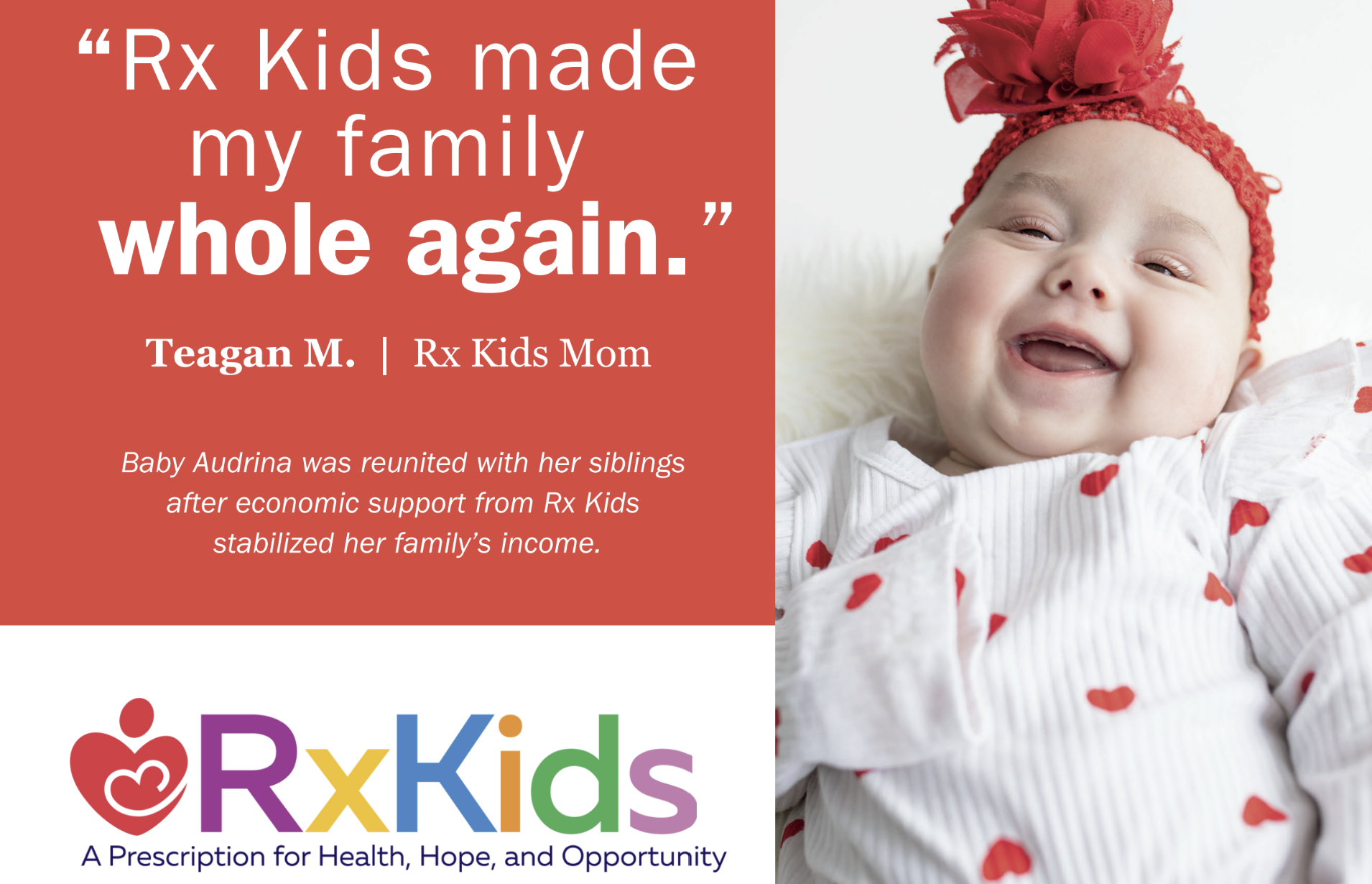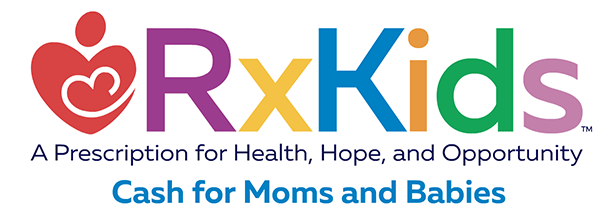
The rapid and successful impact of Rx Kids since its launch earlier this year could soon be a national model for improving health equity and the future health of children around the country.
Since January of 2024, Rx Kids has prescribed over $4 million in cash to more than 900 Flint babies and their families. Those cash prescriptions have already made a tangible impact in fighting childhood poverty locally. According to survey responses from participating parents, about 70 percent of Rx Kids enrolled families have an annual income below $10,000. The top five spending categories those payments have been used on are baby supplies, food, rent, utility bills, and transportation. In a recently published research brief, early findings show that Rx Kids has already strengthened family financial security, improved maternal mental health and wellbeing, and improved infant health.
In a policy proposal unveiled by Vice President Kamala Harris in August, helping families with those vital necessities could become a federal standard. Harris’ platform includes $6,000 in the first year of life for babies.
“Providing monetary support to families with newborns is a direct acknowledgment of what we have known for a long time – that the financial burdens that occur in infancy are often the most expensive and challenging times for mothers, children, and families,” said Dr. Mona Hanna, pediatrician, director of Rx Kids, and Michigan State University College of Human Medicine associate dean of public health. “Vice President Harris’ child tax credit expansion will have a tangible and immediate impact on the health of our children and families nationwide.”
Members of the Biden-Harris administration have been supportive of Rx Kids since its launch, with several members of the administration sending official letters of support in February of 2024 for the program’s launch event. In addition to providing each family with a newborn $6,000, Harris’ proposal would also increase the existing level of the Child Tax Credit to what it was under the American Rescue Plan Act in 2021.
“The creation of this program places Flint, Michigan, at the forefront of innovation in the fight to improve maternal and infant health outcomes,” Harris said in her letter in support of Rx Kids in February. “You all play a vital role in providing material support to our Nation’s most vulnerable and underserved communities.”
On The Bulwark Podcast in October of 2024, journalist Catherine Rampell said that the $6,000 figure in Harris’ proposal came directly from Rx Kids.
“I was talking with people with the (Harris) campaign, asking where you came up with the $6,000 figure, was it based on some calculation of what it costs for a newborn baby?” Rampell said on the podcast. “I was told, ‘Actually, it was inspired by this program in Flint.’”
Dr. Mona was invited to speak in front of Congress and then at a White House Convening on child welfare in July to share how Rx Kids has facilitated more economic support for children in Flint. It was there, according to reporting by Catherine Rampell in the Washington Post, that additional members of the Harris team learned about and saw the national potential of Rx Kids.
“Hanna gave a presentation about Rx Kids at the White House earlier this year, and staff fell in love with it,” Rampell wrote. “A version of the program made its way into Harris’s presidential platform: offering every family with a newborn $6,000 as a refundable child tax credit. At campaign stops around the country, Harris has marketed this promise as a centerpiece of her agenda to reduce the cost of living.”
Rampell noted in her story that the Harris proposal has one key difference from Rx Kids: it does not include the Rx Kids $1,500 prenatal cash payment that moms receive before their baby is born. However, the Harris proposal would revive the expanded child tax credit for older kids, which had tremendous success in reducing the number of children living in poverty during the pandemic.
“The first year of a child’s life is critical to their development, and that also happens to be a time when many families face the most financial burdens,” said Dr. H. Luke Shaefer, co-director of Rx Kids, and professor of public policy and director of Poverty Solutions at the University of Michigan. “When children are born into families that are already struggling financially, that sets a course for their entire lives. This proposal to make the child tax credit permanent and add more support for families with newborns will make the remarkable early successes of the Rx Kids program in Flint possible for families all over the country.”
“The payments are extra income that helps to create an emergency fund that covers expenses that come up unexpectedly with kids,” said Katharine, an Rx Kids mom, in her response to a survey of moms participating in the program. “Knowing I have the money to pay those expenses without having to go without paying other bills is wonderful and provides a secure feeling.”
The success of the program in Flint will soon be felt in other Michigan communities as well. The state of Michigan allocated $20 million in its next state budget to expanding Rx Kids to other communities. In August of 2024, Kalamazoo was announced as the next Rx Kids location in Michigan, with plans for a 2025 launch.
To learn more about Rx Kids, visit RxKids.org, Facebook, Instagram, and LinkedIn.
